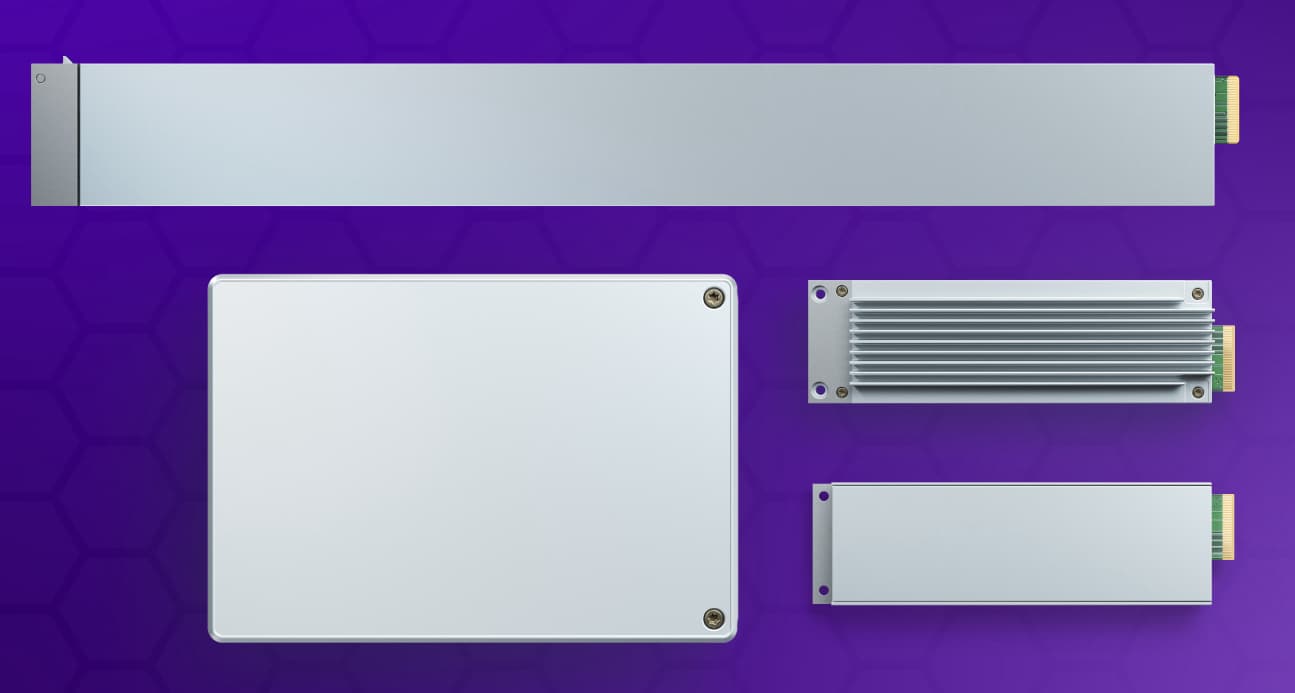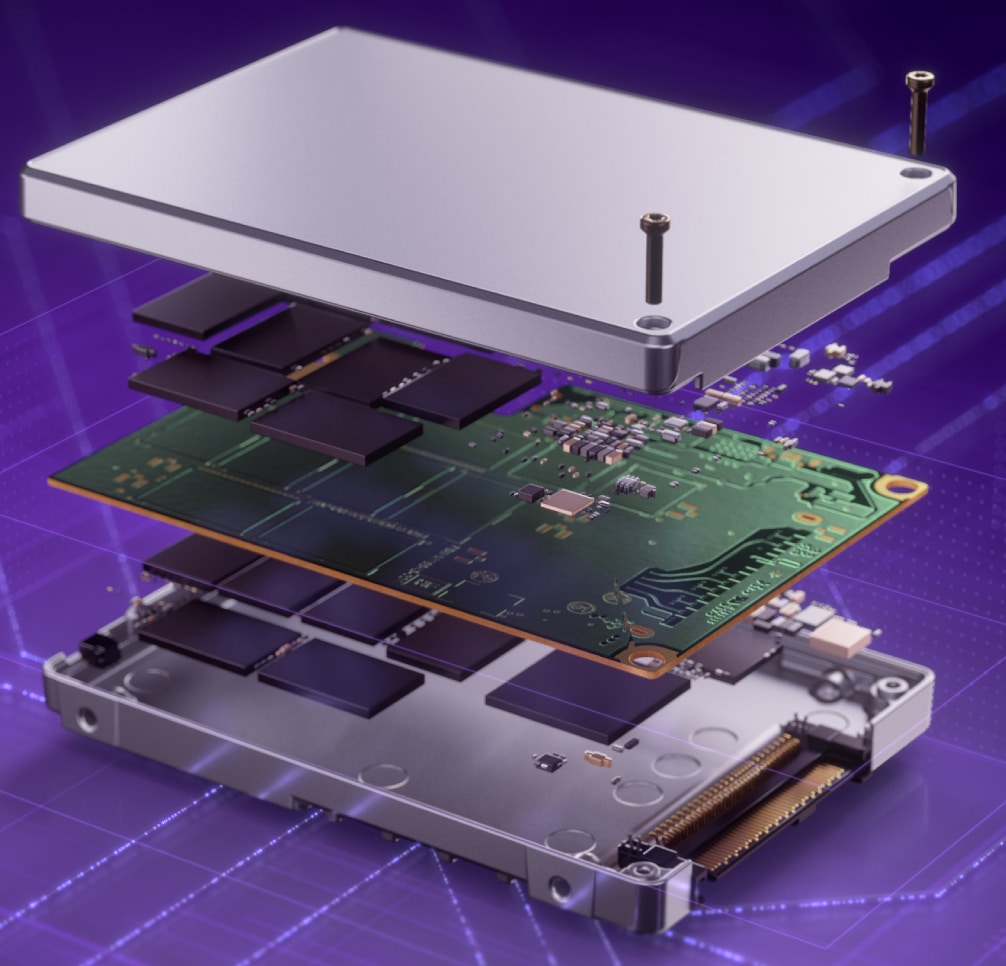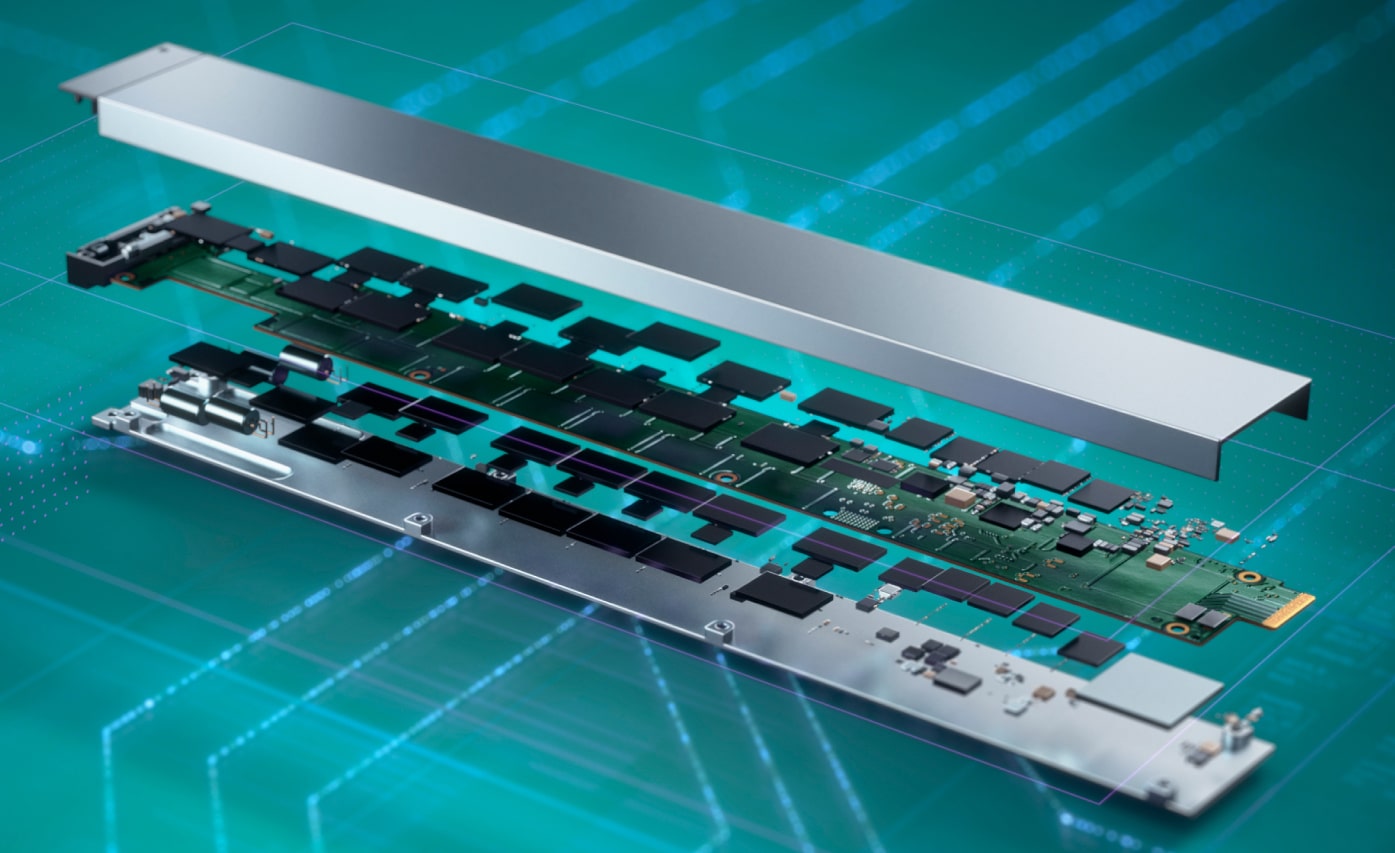Solidigm has announced the introduction of the D7-P5520 and D7-P5620 high-performance SSDs geared toward cloud and enterprise workloads designed with zero tolerance for data errors. The new D7 drives are optimized for real-world compute and storage server workloads, available in several form factors and capacities, with a smaller storage footprint and lower power consumption.
Solidigm has announced the introduction of the D7-P5520 and D7-P5620 high-performance SSDs geared toward cloud and enterprise workloads designed with zero tolerance for data errors. The new D7 drives are optimized for real-world compute and storage server workloads, available in several form factors and capacities, with a smaller storage footprint and lower power consumption.
Update 5/23/22 – Solidigm P5520 Review Posted

These new SSDs are the first family of products introduced by Solidigm since launching as a standalone company in December 2021. Solidigm says the D7 Series comprises the industry’s most advanced PCIe 4.0 SSD family of products with numerous capacity offerings, form factors, and performance capabilities. The D7 SSDs reflect insights gained from deep technical engagements with cloud providers, OEMs, and storage innovators. Solidigm has indicated that the SSDs were designed and tested with zero tolerance for data errors, consistently durable IOPS and QoS, and near-zero lifetime performance degradation.

The D7-P5520 is designed for read-intensive and light mixed workloads. When compared to previous generations, the D7 P-5520 significantly accelerates read-intensive workloads. The D7-P5520 has demonstrated accelerated performance across workloads with up to 42% higher 4K Random Reads, 17% higher 4K Random Writes, and up to 43% better latency. It also delivers up to 40% better read responsiveness in the presence of write pressure than the competition, a key consideration for real-world workloads.

The D7-P5620 is designed for mixed workloads and has shown significant improvements for write-intensive workloads. The D7-P5620 delivers up to 56% 4K higher Random Reads and up to 53% higher Random Writes, with up to 29% better latency over prior generations.
| Model | Solidigm SSD D7-P5520 | Solidigm SSD D7-P5620 |
| Capacity and Form Factor | U.2 15mm: 1.92TB, 3.84TB, 7.68TB, 15.36TB E1.S 9.5mm/15mm: 1.92TB, 3.84TB, 7.68TB E1.L 9.5mm: 15.36TB |
U.2 15mm: 1.6TB, 3.2 TB, 6.4TB, 12.8TB |
| Interface | PCIe 4.0 x4, NVMe 1.3c | PCIe 4.0 x4, NVMe 1.3c |
| Media | Intel® 3D NAND Technology, 96-layer, TLC | Intel® 3D NAND Technology, 96-layer, TLC |
| Performance | 128K Sequential R/W up to 7,100/4,200 MB/s | 128K Sequential R/W up to 7,100/4,200 MB/s |
| Random 4KB R/W up to 1.1M/220K IOPS | Random 4KB R/W up to 1.1M/390K IOPS | |
| Endurance | 1 DWPD (5 yrs) | 3 DWPD (5 yrs) |
| 4K Rand. R/W Latency | 75/15µs | 75/15µs |
| Max Avg. Active Write: 20W Idle: 5W | Max Avg. Active Write: 20W Idle: 5W | |
| Warranty | 5-year limited warranty | 5-year limited warranty |
The D7 Series reduces the total cost of ownership (TCO) through the combination of higher performance and expanded capacities. For example, OEMs designing for a 10M IOPS 2U server can reduce the storage footprint up to 27% while reducing power consumption up to 20% generation over generation. In addition, the D7 Series can be used in a wide array of storage configurations, including 1U and 2U tiered and monolithic configurations in compute and storage servers. The drives are available with extended capacity ranges and in multiple form factors, including E1.L and multiple E1.S offerings.
Visit solidigm.com for more information on the D7-P5620, the D7-P5520, and the entire D7 Series,
tuned for real-world mixed and performance-sensitive workloads.
Update 5/23/22 – Solidigm P5520 Review Posted
Engage with StorageReview
Newsletter | YouTube | Podcast iTunes/Spotify | Instagram | Twitter | Facebook | TikTok | RSS Feed
